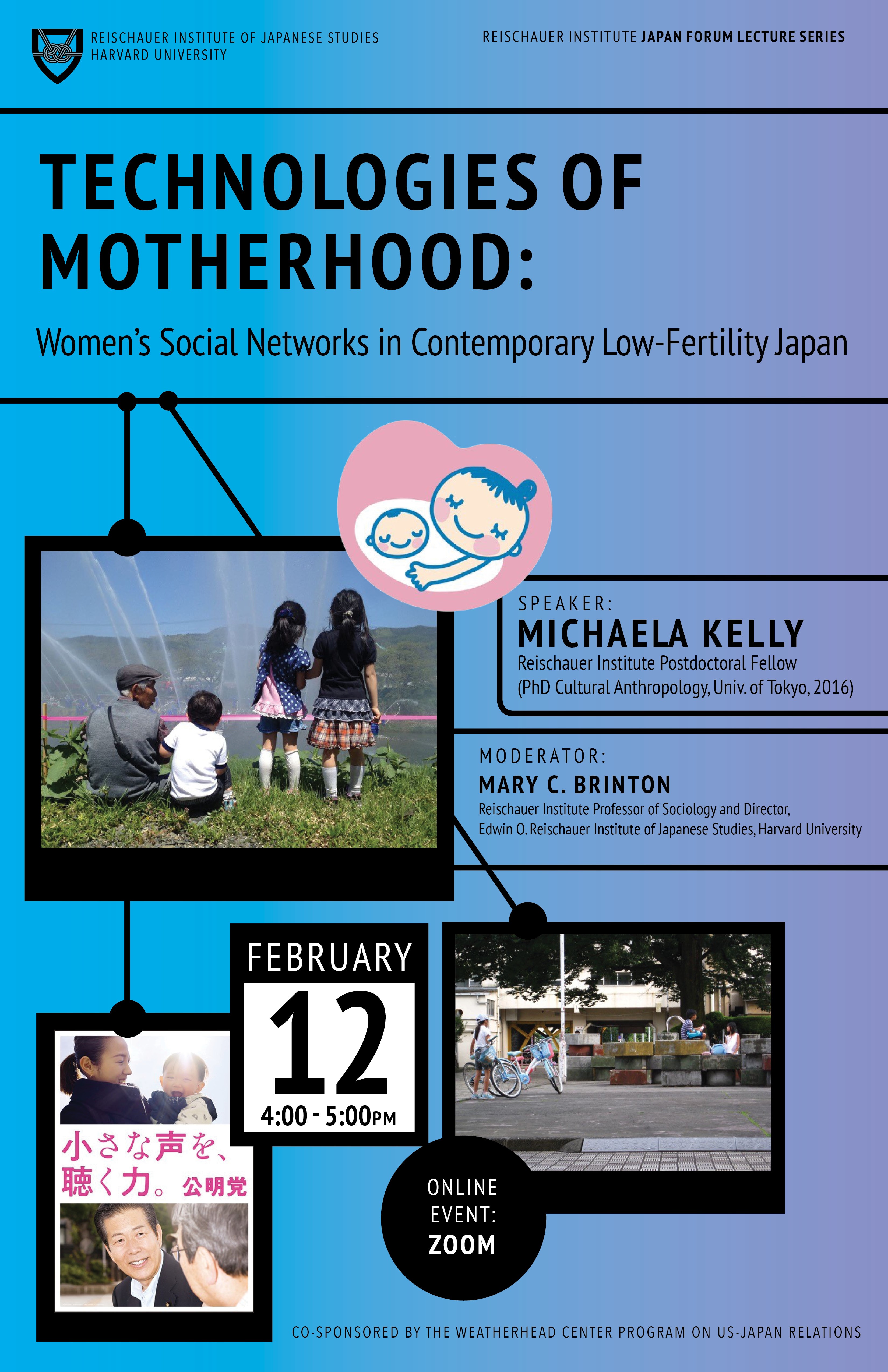Technologies of Motherhood: Women’s Social Networks in Contemporary Low-Fertility Japan
***
Presentation Abstract:
In contemporary Japan, characterized by an aging population and low fertility, the government has attempted enacting a slew of pronatalist and gender equity policies to support young laborers and encourage the flagging fertility rate. Unlike previous iterations of top-down fertility policies enacted on the Japanese public in the past, people in the contemporary era display less susceptibility to government pressure and instead rely their own processes of family-making. Ethnographic data derived from close engagement with women and men (particularly women, who were the focus) shows that women with young children strategically create and sustain social networks that enable them to respond to their own reproductive, career, and personal goals. By diversifying and editing the people in these networks, women surround themselves with the resources they need to both parent and express themselves, often bypassing familial, social, and governmental expectations about the desirable form and size of a family. Largely treated as an unremarkable expression of an endemic female sociality, these strategic and sophisticated networks must be analyzed as a form of reproductive technology controlled and operated by women. Only through understanding the control women exercise in their networks will we understood the rejection of the ideals of the large family and singular focus on motherhood for many Japanese women.
Reischauer Institute Japan Forum Lecture Series co-sponsored by the Weatherhead Center Program on U.S.-Japan Relations
